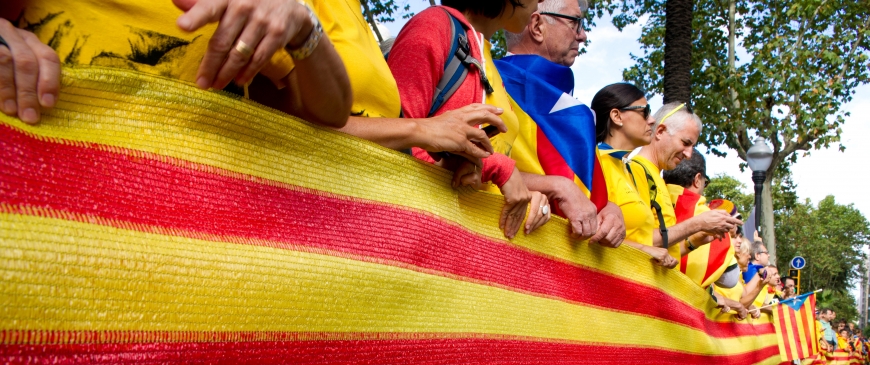
New leader's election leaves Catalan crisis unresolved
"We'll have another crisis," said Camino Mortera-Martinez, from the Brussels-based Centre for European Reform think-tank. She noted that both Torra and Rajoy had the choice between two bad options.
The new Catalan leader, who was chosen by Carles Puigdemont, the Berlin-exiled leader who organised the referendum last year, has promised to stay at his post only until Puigdemont is cleared of rebellion and embezzlement charges and can return to Barcelona.
"Will he follow Puigdemont's orders or will he go for his own political goals?" Mortera-Martinez asked.
She pointed out that Torra was "a kind of more radical pro-independence [figure] than Puigdemont", and his separatist views were based on culture and language, while Puigdemont focused more on social issues.
If Torra waits for a hypothetical return of Puigdemont, "Catalonia will be heading for a longer time of doing nothing and it will not be good for the economy", Mortera-Martinez said.
But if Torra starts taking political measures, "we have the risk an open conflict [with Madrid] and the risk of taking it to the streets," she said.
Rajoy, for his part, "is weaker than in October," the political scientist noted.
Rajoy's tough stand on Catalonia failed to weaken separatists in the December elections, or to deter them from electing a hardliner as the region's new leader.
If Rajoy, who will meet the opposition leaders on Tuesday and Wednesday, does nothing, "he takes the risk of a future ... crisis," Mortera-Martinez said.
She wondered however how the prime minister would be able to explain a potential re-activation of Article 155.
"What kind of message would he be giving to the Catalans?" she asked, adding that in Madrid, he is under growing criticism from the Ciudadanos party for not being strong enough.
